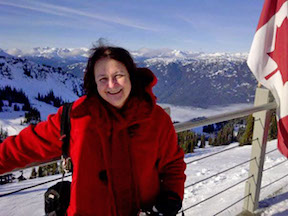Section 1
When was this essay written? What events/intellectual features of the time prompted it? Might Bhabha's background in Indian culture have affected his response to some of the political issues he raises?
What, according to Bhabha, is wrong with the notion that “theory” is and should be the language of a social and cultural elite? (2379) What false dichotomy does this create for those who seek to bring about social change? (2380-81)
What characterizes "the true"? (ambivalence of the process of emergence itself, 2382-83) What nineteenth-century theorist does he believe partly anticpates his views? (J. S. Mill, 2383)
What role does he believe a “committed theoretical perspective” will have in political struggle? (should negotiate contrary roles that “open up hybrid sites and objectives of struggle,” 2385)
What do he and Stuart Hall believe to be the place of “imagining” or representation in the practice of politics? (2382) (2387, Its conceptual vigilance never allows a simple identity between the political objective and its means of representation.)
Why cannot we simply identify political positions as progressive or reactionary? (2383, new terms are always created through the negotiation of antagonist elements)
What is the value of disagreement and alterity in producing “truth”? (2383) Which Victorian thinker had earlier expressed similar views?
What does Bhabha mean by “a space of hybridity”? (construction of a political object that is new, neither the one nor the other, 2385)
In what context does Bhabha describe this negotion as a translation? (2386) Why must it use the “messy mask of camouflage”? What insight will theory give into the relationship of such discourses as feminism or marxism? (2386)
What forms of certainty does Bhabha believe that a theoretical sophistication will deny us? (we must learn that “there is no given community or body of the people whose inherent, radical historicity emits the right signs”)
What theoretical lessons does Bhabha believe can be learned from the example of the British coal miners’ strike of 1984-85 (need to negotiate differences within a coalition, 2387-88)
What does it mean to say that the “politics of struggle” is the “struggle of identifications”? (2389)
Why is it impossible to separate the time and place of the intellectual and the activist? (2390) Can there be a first or final act of revolutionary transformation?
Section 2
What is the result of defining critical theory as “Western”? (2391, other becomes metaphor, unable to speak)
What does he see as some potential contributions of this tradition? (Althusser, Lacan, Foucault, 2391) What is needed to counteract its “institutional containment”? (study of cultural difference, 2392)
What distinction does he make between “cultural diversity” and “cultural difference”? (2393, latter is “process of the enunciation of culture as knowledgeable”)
What aspect of cultural difference do we need to rethink, in his view? (2394, loss of meaning in the articulation of everyday life between different groups)
How does he see this difficulty embodied in the conflict between traditionalism and the negotiation of the present? (strategies for representing past are modes of representing authority “in terms of the artifice of the archaic,” 2394)
What views of Fanon does he cite with approval? (2394, instability of cultural present in time of revolution)
What feature of symbolic representation itself results in the act that a cultural text or system of meaning cannot be sufficient unto itself? (2395, difference between grammatical statement and entire context, “The meaning of the utterance is quite literally neither the one nor the other.”)
What form of narratives of “homogenous, serial time” does Bhabha wish to see displaced? (2396)
What is meant by a “third space”? (2396, site of enunciation which can be appropriated and translated anew)
In his view, what features of change are illustrated by the recent history of Algeria?
What views of necessary change are enunciated by Wilson Harris?
What is met by the hybridity of cultures, and how does this notion differ from that of mere diversity or multiculturalism?
To what extent could his observations be applied to the study of African-American cultures?
Are any of the post-colonial theorists we have read concerned to include women or feminist ideas in their formulations?
How would you place Bhabha relative to Marxist traditions? What is his relationship to Fanon? Said? Do you see any parallels with reader-response theory?
Pagination refers to The Norton Anthology of Theory and Criticism, 2001 edition.
